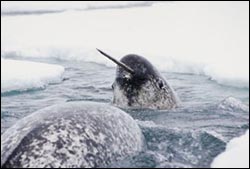This week’s launch of MSG-2 will ensure that satellite images continue to be available to European weather forecasters well into the next decade. It also marks a new chapter in a long-term space experiment measuring the available energy that drives the weather as a whole, and helping to establish how much the Earth is heating up.
MSG-2’s main instrument is the Spinning Enhanced Visible and Infra-red Imager (SEVIRI) which returns detailed 12-wavelength images of the Ear
The deep-sea scientific drilling vessel CHIKYU, owned by the Japan Agency for Marine-Earth Science and Technology (JAMSTEC) and provided to the Integrated Ocean Drilling Program–jointly funded by Japan and the United States–has recently undergone successful testing operations, according to JAMSTEC-CDEX Director-General Asahiko Taira. Successful performance results are now available for the Blow Out Preventer (BOP) handling System Integration Test (SIT). Dr. Taira also reported successful pist
A team led by Dr. Patrizia Caraveo of the Italian National Institute for Astrophysics (INAF) in Milan discovered this cometary trail with data from NASA’s Chandra X-ray Observatory Archive. The discovery follows the team’s discovery in 2003 using ESA’s XMM-Newton of Geminga’s twin X-ray tails stretching for billions of chilometers.
Together, these observations provide unique insight into the contents and density of the interstellar “ocean” Geminga is plowing thro
In the first-ever poll of European consumers, supermarkets, chefs and restaurateurs on attitudes toward seafood and the ocean, 79% said that the environmental impact of seafood is an important factor in their purchasing decisions.
The new study, commissioned by the Seafood Choices Alliance in partnership with Greenpeace, the Marine Conservation Society, WWF and the North Sea Foundation, reveals that 86% of consumers would prefer to buy seafood that is labelled as environmentally re
Coating of tightly packed particles on bubble surface supports stresses to stabilize shape
Researchers at Harvard University have demonstrated that gas bubbles can exist in stable non-spherical shapes without the application of external force. The micron- to millimeter scale peapod-, doughnut- and sausage-shaped bubbles, created by coating ordinary gas bubbles with a tightly packed layer of tiny particles and then fusing them, are described this week on the web site of the journ

Harvard School of Dental Medicine Researcher Announces Findings Today
Today, Harvard School of Dental Medicine (HSDM) researcher Martin Nweeia, DMD, DDS, answers a marine science question that has eluded the scientific community for hundreds of years: why does the narwhal, or “unicorn,” whale have an 8-foot-long tooth emerging from its head, and what is its function? Nweeia, a clinical instructor in restorative dentistry and biomaterials sciences at HSDM, will be presenting his